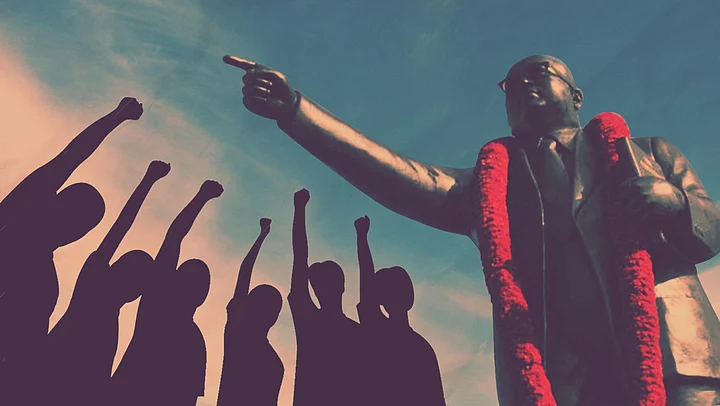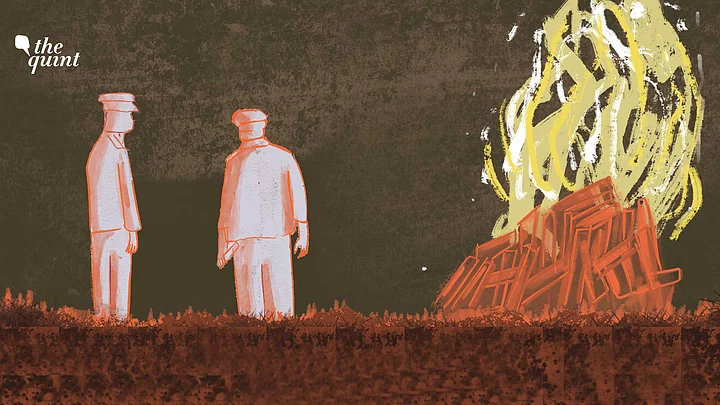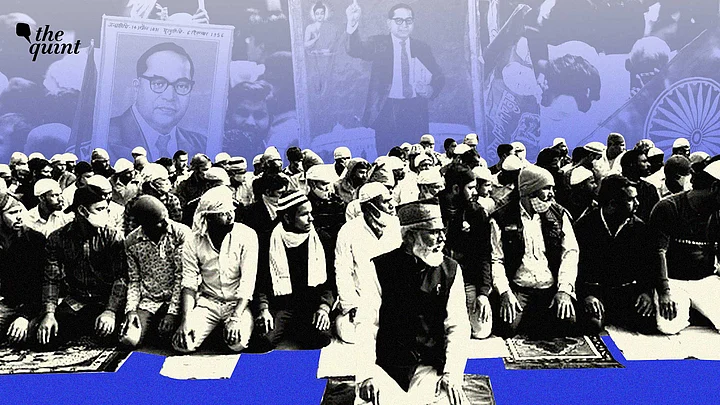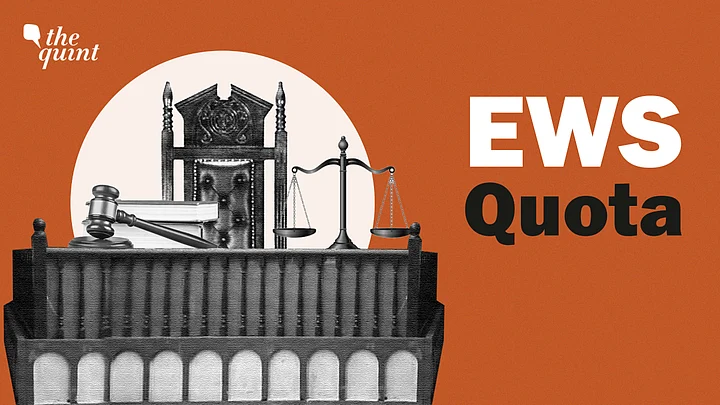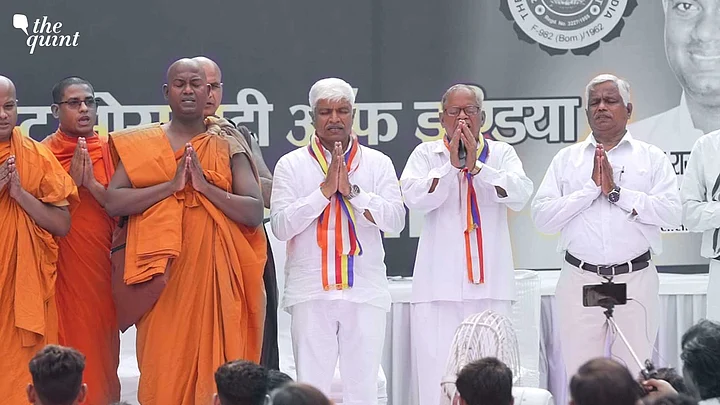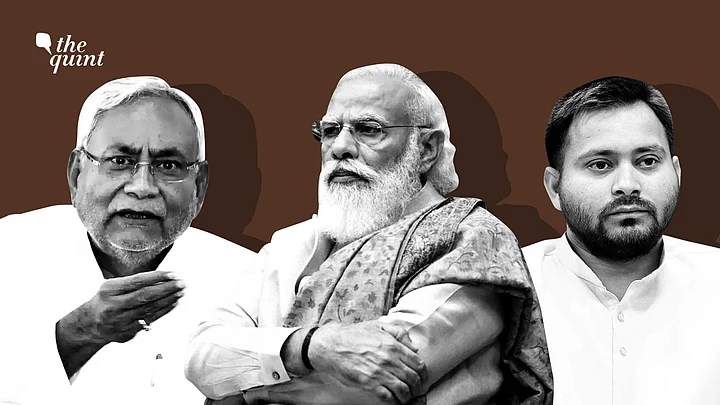The Indian government has opposed the inclusion of Dalit Muslims and Dalit Christians in the Scheduled Castes (SCs) category in a recent affidavit filed in the Supreme Court.
The Narendra Modi-led Bharatiya Janata Party government had raised the hopes of millions of Dalits in October when it formed a three-member commission, under the chairpersonship of KG Balakrishnan, to look into the eligibility of Dalit Muslims and Dalit Christians for the SC status. However, those hopes, for the time being, have been dashed.
The point of contention is Clause 3 of the Constitution (Scheduled Castes) Order, 1950, which states that only those persons who profess Hindu, Sikh or Buddhist religion can be a part of a Scheduled Caste. The original presidential order accorded SC status only to Hindus and, as an exception, four explicitly mentioned Sikh castes from the Punjab region.
Government Says the Word 'Hindus' Covers Sikhs and Buddhists Too
The presidential order was amended in 1956 to add Sikhs and in 1990 to include Buddhists. The writ petition filed in the Supreme Court argues that Clause 3 of the order needs to be further amended because it currently discriminates against SC converts to religions like Christianity.
The government has put forward a number of reasons to argue against according SC status to Dalit Muslims and Dalit Christians. One of its arguments is that in Clause 2(b) of Article 25, the word 'Hindus' is supposed to be inclusive of Sikhs, Jains and Buddhists as well.
"The dispensation in case of Sikhs and Buddhists converts cannot therefore be cited as a precedent for a similar treatment of Scheduled Caste converts to Christianity," the affidavit says.
However, carrying over the meaning of 'Hindus' in Article 25 to apply to the 1950 presidential order seems arbitrary. This can be demonstrated by exploring three questions:
If the word Hindus was inclusive of Sikhs, Jains and Buddhists, then
What was the need for the 1956 and 1990 amendments?
Why were those professing Buddhist religion denied SC status by the Union of India till the 1990 amendment?
Why are Jains still ineligible for the SC status?
Further, the inclusion and exclusion of individuals from the SC category should be on merit and not on a strict, technical reading of the Constitution.
Here, it also must be stated that several Buddhist or Sikh individuals would object to being labelled as Hindus.
Untouchability Being Practised Since 'Time Immemorial'
The Government of India has also contended that Hindus have been practising untouchability "since time immemorial," as a part of their caste system, as opposed to Christianity, which is an egalitarian religion in its conception. It is worth quoting the extract in full.
"The criteria followed in deciding whether a caste/ community is eligible for inclusion in the list of Scheduled Castes is extreme social, educational and economic backwardness arising out of the traditional practice of untouchability, practised by Hindus since time immemorial. Since the caste system and associated customs and practices of untouchability are a feature of Hindu society, historically the system of special representation for Scheduled Castes was evolved specially in relation to position of castes in Hindu society who were affected by the practice of untouchability. In its conception, Christianity is an egalitarian religion which does not recognise caste and is therefore antithetical to practices of untouchability."– Union of India, in an affidavit filed in the Supreme Court
This passage rightly points out that a caste is eligible to be included in the SC list if it has historically faced untouchability, resulting in its extreme social, educational and economic backwardness.
It is also mildly surprising to see the Narendra Modi government admitting that the caste system and the practice of untouchability can be traced back to antiquity.
However, the conclusion drawn is wrong on multiple grounds. For one, focusing on religion instead of caste for deciding the SC status amounts to putting the cart before the horse. If the SC category is a response to the untouchability faced by castes, the government should identify such castes without bringing any individual's religion into the picture.
Do Savarnas Treat Dalits as Equals After They Become Muslim or Christian?
The affidavit claims that once SC individuals convert to Christianity or Islam, they no more face the "disabilities and handicaps" they did earlier. In its support, the government cites one authority, Rev Samuel Mateer, a British Christian missionary, who wrote two books titled Land of Charity (1870) and Native Life in Travancore (1873).
But surely, books by a Christian missionary from the 19th century cannot be taken as the final authority on this matter 150 years later.
The government admits that it doesn't have any data of its own on the socio-economic conditions of Dalit Muslims and Dalit Christians. It has also dismissed the Ranganath Mishra Commission report in the affidavit on the grounds that it didn't take up field study. And it is not interested in publicly available data, such as that available in Pasmanda activist Ali Anwar's book, Dalit Musalman.

Cover photo of Ali Anwar's book 'Dalit Musalman'
(Photo Courtesy: BookGanga)
Since Islam and Christianity have existed in India for centuries, many Muslims and Christians may not be able to tell exactly when their ancestors converted to these religions. But, contrary to what the affidavit claims, they haven't managed to shed their caste baggage, just like their Hindu and Sikh contemporaries, which becomes amply clear if one reads an ethnographic study like Tamanna Inamdar's book Muslim Balutedar.
Caste Is an Imposed Identity
Caste is an ascribed identity – one is labelled with it at birth and it sticks with one for life. Also, as Babasaheb Ambedkar has famously stated, caste doesn't exist in a silo. The empirical reality of a caste can be fully understood only in relation to other castes.
When a person converts to another religion, their customs, the god(s) they worship, the festivals they celebrate, etc, will change. If they used to cremate the dead earlier, they may now bury them. However, studying these internal practices will not make us wiser about the the actual effects of the caste system.
To truly understand if the debilitating effects of the caste system have decreased or vanished after conversion, one needs to enquire about a different set of things. Imagine a Dalit family has recently converted to either Islam or Christianity –
Do the family members now have access to all public roads in the village?
Are they now allowed to access the public waterbodies like wells, lakes, rivers just like any other person in the village?
Have the Savarnas in the village stopped looking at them with contempt? Have they stopped using caste labels or casteist slurs against them?
Are they now invited to village feasts and are allowed to sit wherever they want at the feasts as a Savarna would be.
Castes are relational and hierarchical. A person has the option to choose any religion they want but they don't have control over how members of other castes treat them, their family and their community, before or after conversion.

Infant Jesus Catholic Church, Patti, Punjab. Many Dalit Sikhs and Hindus have converted to Christianity in Punjab in the last few decades, though they keep their earlier religion on paper to avail of the SC reservation.
(Photo: Sandeep Singh/The Quint)
Wrong To Treat Conversion to Islam and Christianity Differently Than Conversion to Sikhism and Buddhism
Also, contemporary discrimination is just one part of it. These castes have faced untouchability "since time immemorial," as admitted by the government itself. The effects of that inhuman practice cannot go away overnight.
What exactly is it in Islam and Christianity that makes the "extreme economic, educational and social backwardness arising out of untouchability" go away magically? Should we draw the conclusion that these religions are more powerful than the Indian State, which, after outlawing untouchability and vowing to eradicate it, has actually struggled to do that since 1947?
A major point that the government misses here is that untouchability is practised by other communities – the communities that consider themselves superior to Dalits. These communities exist across religions, and there is no evidence that their attitude changes if a Dalit person changes religion.
It is also ludicrous to claim that Dalit Hindus who convert to Islam and Christianity stop facing caste discrimination while the discrimination continues as is if they convert to Buddhism or Sikhism. There is no empirical, or even logical, basis to this claim. A report by Satish Deshpande and Geetika Bapna actually states that Dalit Sikhs generally have done better than other Dalits on economic indicators while Dalit Buddhists have done better than other Dalits on educational indicators.
Lack of Data Exposes Government's Incompetence or Apathy, or Both
Another important point to keep in mind is that making the SC status religion-neutral doesn't automatically include Dalit Muslims and Dalit Christians in the SC list. The SC list is a list of castes and the inclusion (and exclusion) of each caste has to go through deliberation in the Parliament.
If the KG Balakrishnan Commission finds out that there are caste groups among Muslims and Christians who have been facing untouchability, they can be included in the SC list on a case by case basis. The religious identity of these communities, just like in the case of Scheduled Tribes and Other Backward Classes, should not be relevant.
The government also needs to ask why it has not collected data about Dalit Muslims and Dalit Christians in the last 75 years. Isn't it a governmental failure and a gross injustice towards these communities when the government has all the means to collect data about its citizens? The government should seriously consider collecting caste-wise data in its decennial census as it will solve a lot of its data problems and it will no more have to rely on 19th century Christian missionaries for the same.
(At The Quint, we question everything. Play an active role in shaping our journalism by becoming a member today.)

